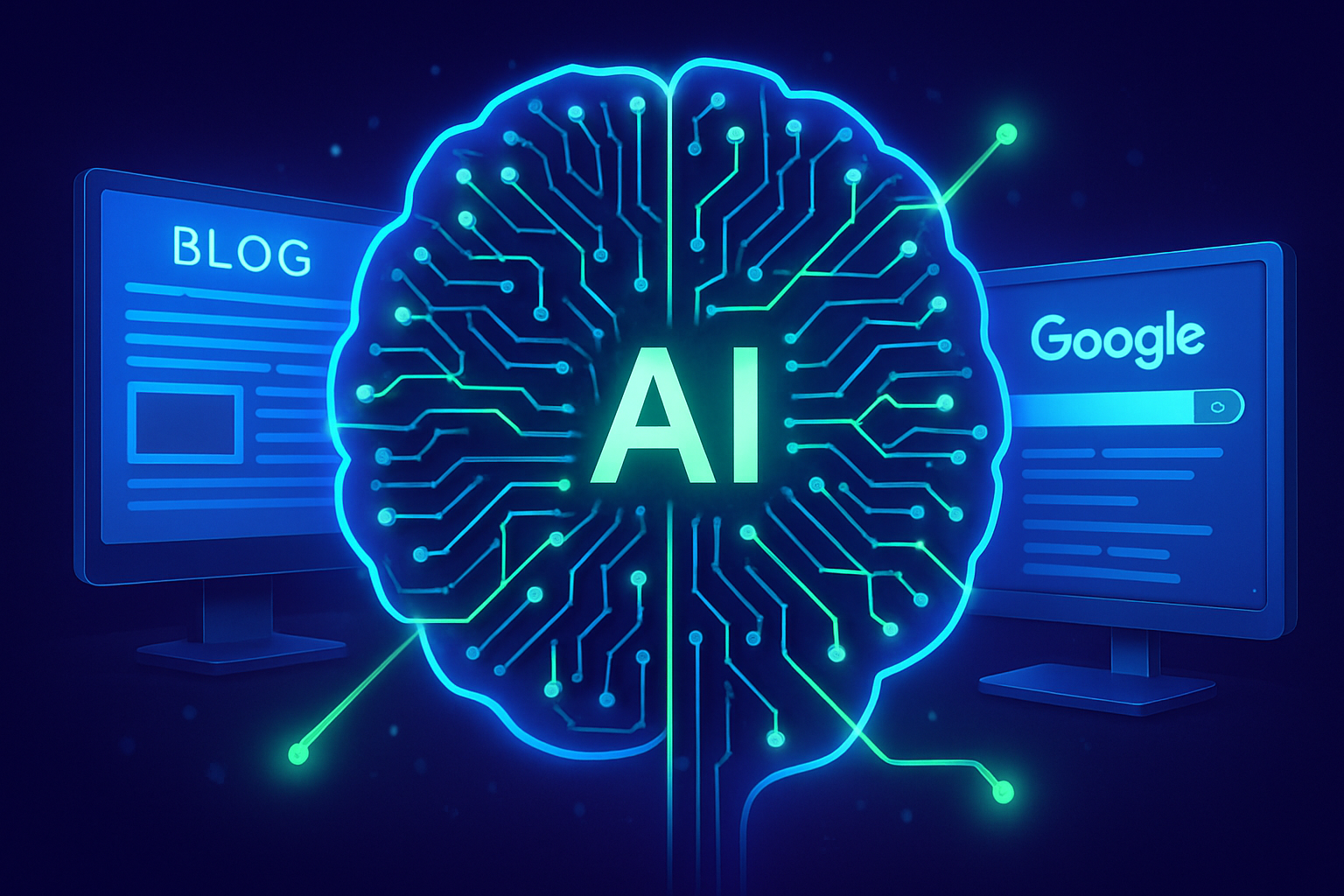Is Google Using AI to Judge Your Blog? (Beginner's Guide)
Discover how Google's AI judges your blog and learn simple steps to optimize for better rankings. A beginner's guide to SEO in the age of AI.

Is Google Using AI to Judge Your Blog? Probably.
The world of SEO (Search Engine Optimization) is constantly evolving, and lately, Artificial Intelligence (AI) has become a major player. The big question on every blogger's mind is: Is Google using AI to judge my blog's content? The short answer is likely yes, and understanding how that works is crucial for success.
How Google's AI Affects Your Blog
Google's algorithm, the complex system that ranks websites, has integrated AI in significant ways. Two key AI models that directly impact blog ranking are:
- RankBrain: This AI system helps Google understand the intent behind search queries and match them with relevant and high-quality content. It analyzes how users interact with search results and adjusts rankings based on user satisfaction.
- BERT (Bidirectional Encoder Representations from Transformers): BERT focuses on understanding the nuances of language, including context and relationships between words. This helps Google better assess the quality and relevance of your content.
In simple terms, Google's AI is looking beyond just keywords. It's trying to understand if your content is helpful, well-written, and satisfies the user's search intent.
What Does This Mean for Your Blog?
The integration of AI in Google's algorithm has several implications for bloggers:
- Quality Over Quantity: Focus on creating high-quality, informative, and engaging content that provides real value to your readers. Don't just stuff your blog with keywords.
- User Experience Matters: Ensure your blog is easy to navigate, mobile-friendly, and loads quickly. A positive user experience signals to Google that your blog is valuable.
- Understand Search Intent: Before writing, research what users are actually looking for when they search for a particular keyword. Tailor your content to meet that specific need.
- Optimize for Readability: Use clear headings, subheadings, and short paragraphs to make your content easy to read and digest.
Practical Steps to Optimize Your Blog for Google's AI
Here are some actionable steps you can take to improve your blog's ranking in the age of AI:
- Keyword Research: Use tools like Google Keyword Planner, SEMrush, or Ahrefs to identify relevant keywords with high search volume and low competition.
- Content Optimization: Incorporate your target keywords naturally into your title, headings, meta description, and body of your content. Avoid keyword stuffing.
- Internal Linking: Link to other relevant articles on your blog to improve navigation and help Google understand the structure of your website.
- External Linking: Link to authoritative websites to add credibility to your content and provide additional resources for your readers.
- Mobile Optimization: Ensure your blog is responsive and looks good on all devices. Use Google's Mobile-Friendly Test to check your website's mobile-friendliness.
- Page Speed Optimization: Optimize your images, use caching, and minimize HTTP requests to improve your blog's loading speed. Use Google's PageSpeed Insights to identify areas for improvement.
Automating Content Optimization with Make.com
Managing all these tasks can be time-consuming. That's where automation comes in. You can use tools like Make.com to automate many of the content optimization processes. For example, you could create a scenario that automatically checks your blog posts for readability using an AI-powered text analyzer, updates metadata based on keyword analysis, or even generates social media posts promoting your new content.
Imagine automatically checking every new blog post for SEO score, keyword density, and readability level without even lifting a finger. Make.com lets you build these kinds of automated workflows, saving you hours of manual work and helping you focus on creating great content.
The Future of Blogging and AI
AI is only going to become more integrated into Google's algorithm. By understanding how AI works and how it affects your blog, you can stay ahead of the curve and ensure your content continues to rank well. Focus on creating high-quality, user-friendly content that meets the needs of your audience, and you'll be well on your way to success.
Embrace the change, experiment with new strategies, and leverage the power of AI to create a better blog for your readers and for Google.
Frequently Asked Questions
How does Google's AI impact my blog's ranking?
Google uses AI models like RankBrain and BERT to understand search intent and evaluate content quality. This means focusing on creating helpful, well-written content that satisfies user needs.
How can a beginner use automation to improve their blog's SEO?
Beginners can use tools like Make.com to automate tasks such as checking readability scores, optimizing metadata, and generating social media posts, saving time and improving SEO.
Is learning SEO for AI search difficult for someone new to blogging?
While SEO can seem complex, focusing on the basics – keyword research, quality content, and user experience – is a great starting point. Tools like Make.com can help automate and simplify the process.
What are the most important factors for Google AI when judging my blog?
Content quality, relevance to search intent, user experience (page speed, mobile-friendliness), and clear, readable writing are all crucial factors.
Affiliate Disclosure: Some of the links on this site are affiliate links. I earn a small commission if you make a purchase through them—at no extra cost to you. Thank you for your support!